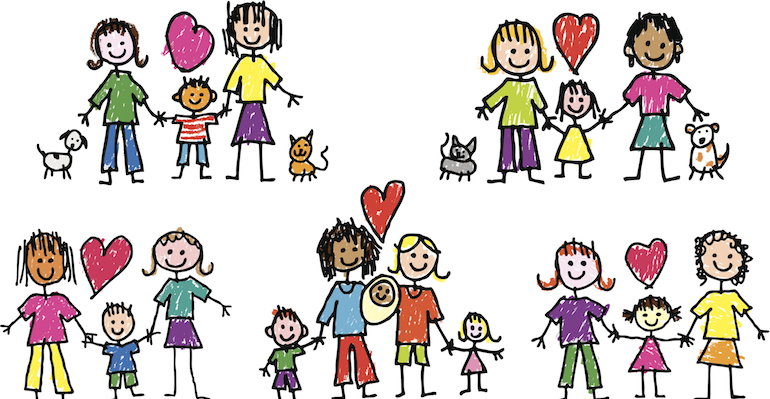Gay life partners who want to start a family often wonder: Can we both become legal parents of our child?
The majority of states permit adoption by single adults; thus, in most situations, at least one member of a gay or lesbian couple can adopt a child. Florida used to be the exception — by explicitly banning adoption by gays and lesbians — but the law was declared unconstitutional by a state appeals court in 2010. A small group of states make it difficult for gay and lesbian individuals to adopt by allowing social workers and judges to consider sexual orientation as a factor in the consideration of the best interests of the child.
Once a child is in your family (whether through adoption or birth), a number of variables, including your state and county of residence, the judge assigned to hear the case, and the skill, commitment, and creativity of your attorney, will affect whether or not your partner can be granted full legal parental rights. Let’s look at the options available.
One choice is adoption. Some states allow gay and lesbian individuals to adopt, but do not permit adoption by two partners. In other states, the second-parent adoption can take place in the same way as a stepparent adoption. However, some states have case law that makes it challenging, though not impossible, for both partners to adopt a child. An ever-growing number of states, as same-sex marriage sweeps the nation, encourage adoption by same-sex couples.
A second option for establishing a permanent, legal bond is called intended parentage. This applies in cases in which one parent conceives a child through assisted reproduction. Intended parentage is based on surrogacy case law where non-biological parents have been determined to be the legal parents of a child. Trial courts in many jurisdictions, including California, Ohio, and Pennsylvania, have found the same-sex partner of the biological parent to be the intended, and therefore legal, parent of the child. Courts have begun to recognize that children born to same-sex partners as the result of assisted reproduction (artificial insemination or surrogacy) are entitled to the same protections afforded those born to married couples.
A third possibility, known as equitable parentage, is recognized in a number of jurisdictions, including Michigan and Wisconsin. Under this doctrine, a partner can be determined by the court to be the childs legal parent if that person has assumed the responsibilities of parentage without the expectation of compensation. This doctrine does not apply to foster parents, unless they have received no payments.
Finally, legal custody, guardianship, and visitation also afford some protection to children whose parents-in-fact are not able to adopt. I suggest that partners who want to protect their childrens rights through legally recognized co-parentage find an attorney who is both knowledgeable and creative. A good place to start is the American Academy of Adoption Attorneys. For the sake of your children, it is worth pushing the envelope in your jurisdiction to create a legally protected, two-parent family.



